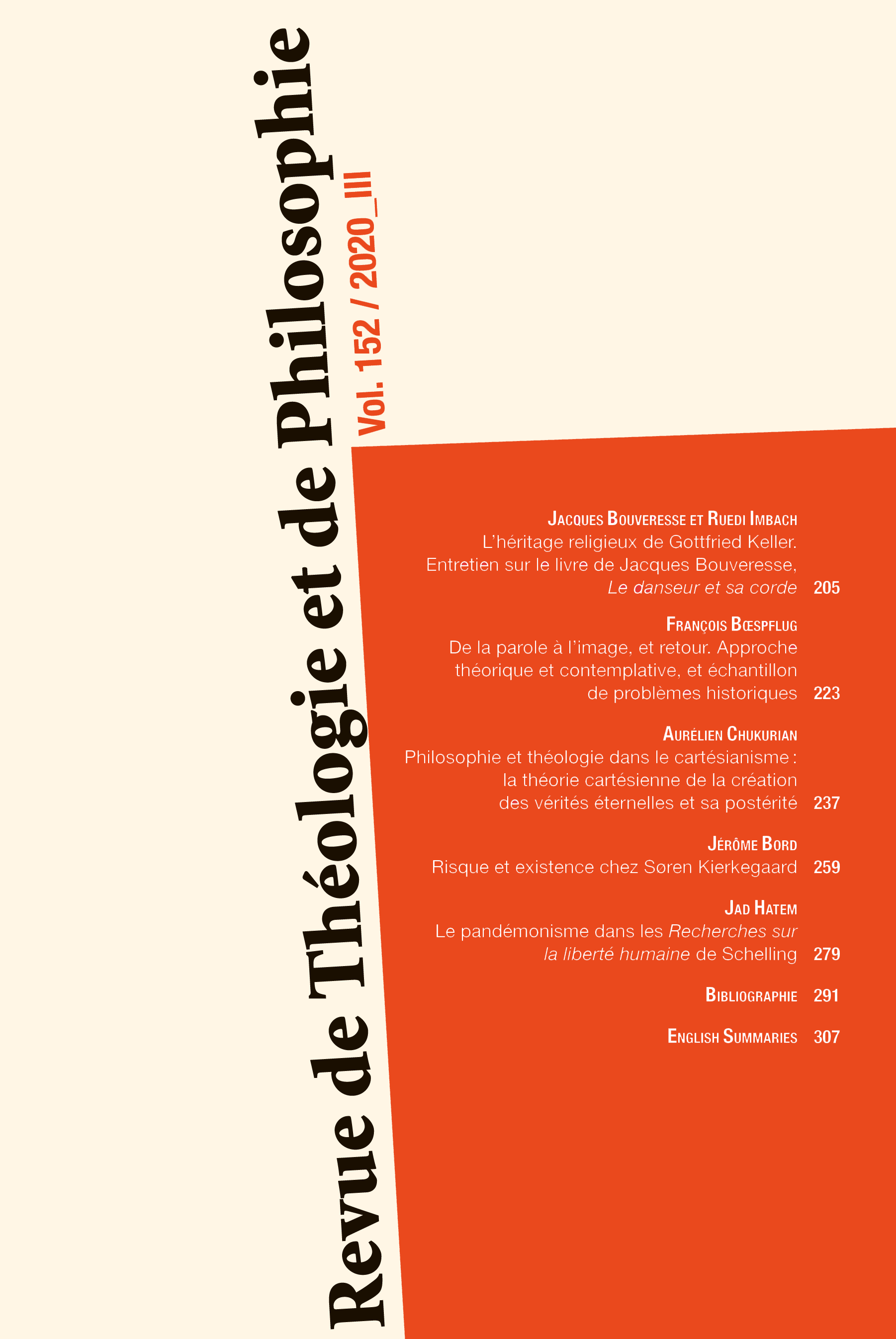The Religious Legacy of Gottfried Keller
Dialogue on the Basis of Jacques Bouveresse’s Book, Le danseur et sa corde (Agone, 2014)
Abstract
Why was Ludwig Wittgenstein so fascinated by some of the works of the great Swiss author Gottfried Keller? Intrigued by this question, Jacques Bouveresse wrote a book about it: Le danseur et la corde. Wittgenstein, Tolstoï, Nietzsche, Gottfried Keller et les difficultés de la foi (Agone, 2014). In this dialogue, which took place at the University of Geneva in May 2017 as part of the local section of the Société suisse de philosophie, Jacques Bouveresse and Ruedi Imbach reflect on the title of this book, on the intention which led to this research, on the sharp critique of institutional Christianity, especially in its doctrinal and doctrinaire versions, in some of Gottfried Keller’s works, as well as on Ludwig Wittgenstein’s enthusiasm for these works and for this critique. The two authors agree that Christianity cannot be taught: it pertains, rather, to what may be lived.How to Cite
[1]
Bouveresse, J. and Imbach, R. 2020. The Religious Legacy of Gottfried Keller: Dialogue on the Basis of Jacques Bouveresse’s Book, <i>Le danseur et sa corde</i> (Agone, 2014). Revue de Théologie et de Philosophie. 152, 3 (Nov. 2020), 205–221. DOI:https://doi.org/10.47421/rthph152_3_205-221.
More Citation Formats




